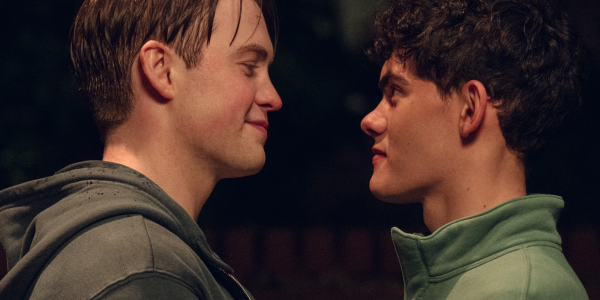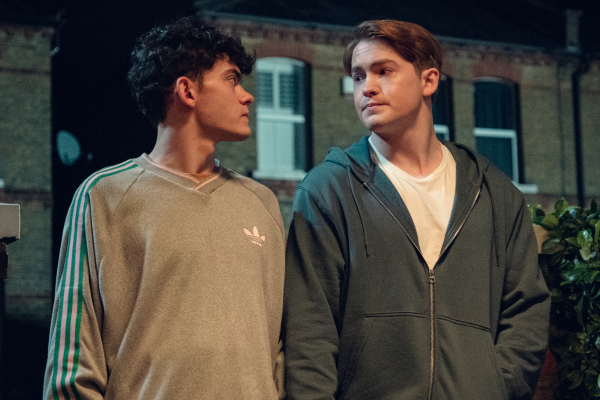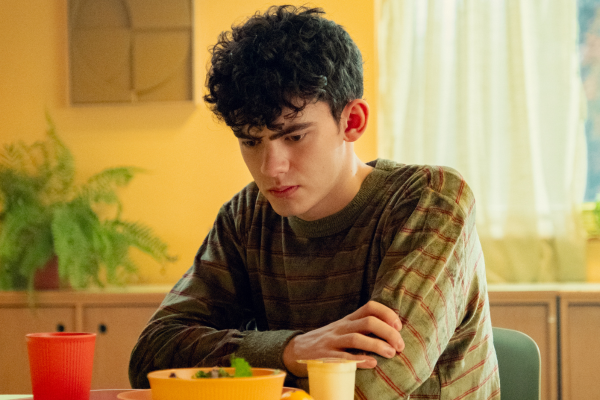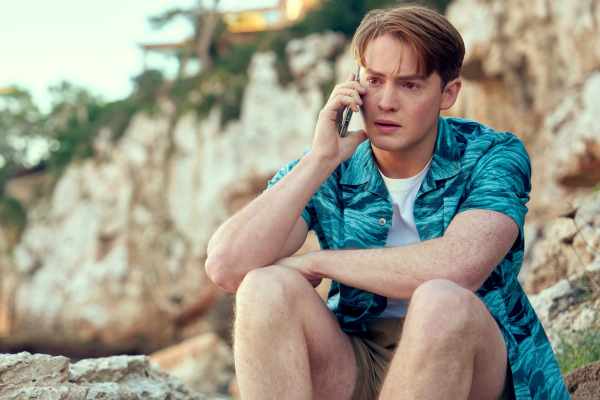
Heartstopper season three is an important watch for teens, and here’s why
Since its triumphant debut on Netflix in the spring of 2022, Heartstopper has been renowned by fans and critics alike for its beautiful, inclusive and comforting depiction of a sweet teenage relationship.
Now, as the show enters into its third season (released today, October 3), the cute romance between shy, introverted Charlie (Joe Locke) and rugby jock Nick (Kit Connor) is taking a much more serious turn.
Fans of Heartstopper will already know that the series isn’t immune to covering topics that you regularly don’t see on screen. Not only does it represent the vast spectrum of the LGBTQ+ community, but it also never hesitates to tackle heavier issues, such as mental health, toxic relationships and bullying.

As expected, season three carries on the tradition of facing ‘taboo’ topics, but there is a significant heaviness within these eight new episodes – and this is mostly due to the unravelling of Charlie’s eating disorder.
During the previous two seasons, loyal Heartstopper viewers will have picked up on Charlie’s complicated relationship with food. Due to its continuation in the original graphic novels by Alice Oseman, viewers can expect to see Charlie’s battle with an eating disorder come to a head in the first half of this season. His mental health hits an all-time low, and it forces both Charlie and Nick to face their biggest challenge yet as a young couple.
I have never had any direct experiences with an eating disorder, but in spite of this, I still found myself feeling profoundly moved watching this third season. Through Charlie’s journey, Heartstopper does an impeccable job of highlighting why this topic needs to be addressed more. Conversations surrounding eating disorders have improved in recent years, but depictions of them on screen are still relatively rare, especially in media targeted towards a younger audience. Within this season, Heartstopper has created a safe space for young adults to educate themselves on the complexities of eating disorders, as well as giving a chance for others to see their own battles portrayed on screen by someone their age.

In one particular episode, Charlie makes the brave decision to admit that he needs help. With his vulnerability and the incredibly powerful performances of everyone involved, I expect that every viewer will be left, at the very least, with a lump in their throat. However, as awful as it is to watch the fifteen-year-old Charlie crumble and confess his darkest thoughts, it also gives viewers hope. Hope that he will get the support that he needs to fight back against his mind. Hope that, somewhere, at least one Heartstopper fan will feel seen, heard, and encouraged to seek help for themselves.
As important as it is to have such an honest representation of a young person’s struggles with mental health, Heartstopper also perfectly captures how agonising it can be when someone you love is suffering, and there is nothing you can do to take that pain away from them. In one devastating conversation between Nick and his Aunt Diane (played by Hayley Atwell), he admits: “I don’t know what to do now […] I really love him. And I’m scared.” Diane subsequently gives her nephew the realisation that “love can’t cure a mental illness”. Much like trying to heal a bullet wound with a plaster, she carefully tells Nick that he can’t “fix” Charlie by himself, and that his love cannot be moulded into an alternative to professional help.

Elsewhere in the series, Heartstopper continues to do what it does best – represent almost every issue and struggle that most teens face on a daily basis. Many discussions have already been had on season three’s “sexier” tone, particularly in reference to Heartstopper's teen relationships – Charlie and Nick, Elle and Tao, and Darcy and Tara – testing out their respective sexual connections. Though, a fair warning that viewers shouldn’t expect to see any explicit, Bridgerton-esque sex scenes – after all, that’s never been what Heartstopper is about. Instead, season three delivers on soft, vulnerable and consent-filled depictions of teenagers in love, braving to take that next step with one another.
Admittedly, Heartstopper isn’t aimed at parents (but it definitely is adorable enough for an older demographic to become enchanted with). However, if your teen isn’t already a fan of the show, it is one that you should consider recommending to them. Even if you have no concerns that your child could be going through some of the same stressors that the Heartstopper gang experience, this sweet show is a masterpiece in educating young people about asking for help through the most difficult times. Even just by watching one episode of season three, your teen will, hopefully, realise that they are never alone.
Heartstopper season 3 is available to stream on Netflix from today.
